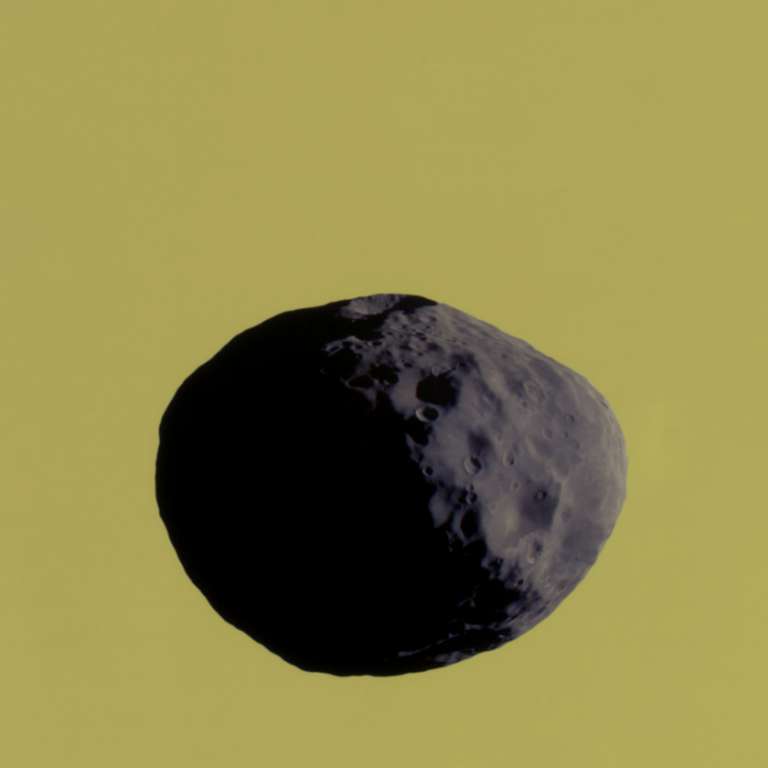Emily Lakdawalla • Apr 04, 2012
Pretty picture: Janus and Saturn
In the last few days as it's rounded periapsis in its current orbit of Saturn, Cassini has taken a lot of great photos of Saturn's moons. One series of photos was taken from pretty close to Janus, a moon about a third the diameter of Enceladus that orbits between the F and G rings. And among those, several were taken with the moon sitting in front of Saturn. I couldn't resist downloading and playing with these; here's the result of a bit of work with an infrared-green-ultraviolet color composite. I found a surprising range of albedo variations across Janus and within its craters; in fact, it reminds me of what we're seeing from Dawn at Vesta. Janus is quite a bit smaller than Vesta, but it's made of weaker stuff (ice, rather than rock); Vesta-sized icy moons look much smoother. Clearly, though, Janus doesn't have as many craters as Vesta does. I think it's well coated in the dust that's everywhere in the Saturn system. Which makes it all the more surprising (to me) that there's such variety in the bright and dark terrain across its surface.

I had to do quite a bit of work on the component images (UV, green, IR) to erase the bright marks of energetic particles striking Cassini's camera detector; that work involved some paining on Janus, especially on its night side, and the use of the Photoshop dust and scratches filter on Saturn. I also resized two of the frames a teeny tiny amount to compensate for Cassini's changing distance to Janus in the time separating the capture of the three frames.


 Explore Worlds
Explore Worlds Find Life
Find Life Defend Earth
Defend Earth

